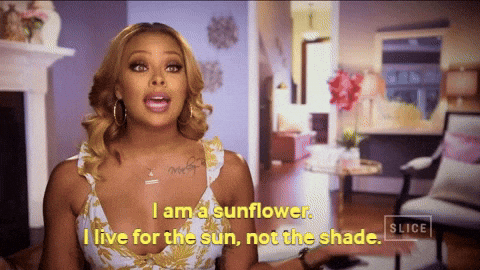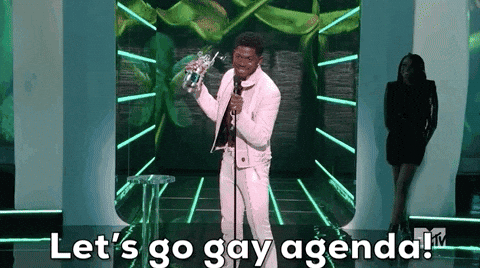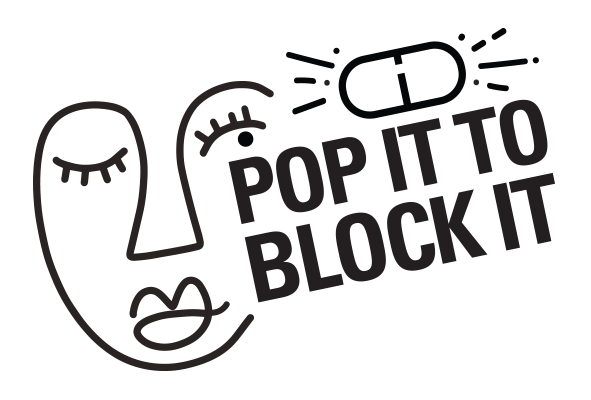Has Sex Positivity Gone Negative?

If we asked you what “good sex” looked like—most of you would have wildly different answers (and some of your answers might even be wild)! Everyone has their turn-ons, and we’re not here to yuck anyone’s yum. ? Though, we wish we could say the same for others. Lately, there’s been some sexual shade trending on social media, and we are NOT here for it. ??

We (as you probably already know) are advocates of ✨sex-positivity!✨ Whether you like what you know, are always willing to try something new, or you’re not interested in sex on any level—your sexual preferences (or lack thereof) are valid. We’re here to shut down anyone making you think otherwise. ??♀️ However, this is not new. Since the beginning of time, people have been judging what is different. But different means not?? the?? same??—it doesn’t mean wrong! Before we dig into what’s trending in sex today, let’s hop in the way-back machine and see how we got here. ????

Sex-Positivity Through the Years
The 1920s
Even though sex has been a prettyyyy taboo topic over the years, that didn’t stop psychoanalyst Wilhelm Reich from coining the term “sex-positive” 100 years ago. (That’s right, sex-positivity has been around since before your parents and most of your grandparents were born ?). “Sex-positive” was used to describe pleasure and freedom in sex over shame and judgment. We like the way you think, Wilhelm! ? But it didn’t seem to catch on because of the negative idea that sexuality was something dirty. Sound familiar? Same shit, different century.
The 1960s
The ‘free love’ movement challenged these societal beliefs about sex by breaking down the stigma associated with having sex without marriage and the goal of reproducing. They were about sex for the pleasure of it all! ?? (Let us take a moment to thank those who came before us for this important work ??) Simultaneously, the gay liberation movement was gaining traction. In 1969, the infamous Stonewall Riots occurred where the LGBT community rioted against police, fighting for gay rights and to normalize queer sexuality. ?️???

The 1970s and 1980s
During the 70s and 80s, the feminist movement was undergoing a transformation. Advocates of second-wave feminism (side note: which was predominately by and for white women) viewed sex with men as harmful to the cause because it was “degrading” and “counterrevolutionary” rather than something that could empower women.? From this sprung what would come to be known as the sex wars with women on one side as “anti-porn” and the other as “pro-sex.” The pro-sex faction later led to the inclusion of sex-positivity as a cornerstone of the third-wave feminist movement.
The 1990s to 2020s
Ever since the sex wars, “sex-positive” has been a commonly used term. Over the last 30 years, you can see this reflected in advertising campaigns, mainstream media including TV (hello, Sex and the City) and movies, and in academia through programs such as women and gender studies. But does its increased presence mean our society is sex-positive? ???♂️

With the growing popularity of the sex-positive mindset, the very idea of what was considered “normal” sex shifted. What used to be viewed as deviant and “alternative” is now front and center (bondage, anyone?) At the time of writing, Freak Tok, or #KinkTok, had received 6.9 billion views, doubling in the last six months! ? Within part of this subcommunity, vanilla shaming has been resurrected. What is vanilla shaming? Great question! No, we’re not talking ice cream. ? We’re still talking sex.
Inspired by the classic ice cream order, “vanilla sex” is a term that was coined by the BDSM (bondage, discipline, sadism, and masochism) community to describe the sexual norm. On the flipside, kink is considered sexual preferences that are outside of the norm. Both these terms are so broad and what people may think is considered vanilla or kink varies.
As with anything outside the socially prescribed norm, kink has been historically stigmatized. (booo!) The sex-positive movement has empowered people to own their sexuality ?? and explore what turns them on. ? But with the emergence of vanilla shaming, has this movement swung too far to the other side?

Like I said, this shit is NOT new. Back in the early 2000s, middle school girls would be referred to as “freezers” if they were viewed to be too prudish. ??♀️ Today, kids are growing up on TikTok—no shade, we love the Tok—but this is where they are getting their information on everything from the newest dance trend to informal (and often inaccurate) sex ed. Sex positivity without the right context has instead turned into societal pressure for many Gen Z-ers, where they feel expected to fit a sexually adventurous mold where they are open to anything, even if it’s not something they want. We might be smack dab in the middle of the next sexual revolution.

No matter if you love a classic scoop of vanilla in a cone ? or if you would rather be licking the ice cream off your partner, ? your desires are valid! Sex educator Goody Howard defines sex-positivity as, “the idea that people should have space to embody, explore, and learn about their sexuality and gender without judgment or shame,” (source).?? Regardless of your feelings about the phrase “sex positive,” I think this definition is something we can allllll get behind. ??
The most important rule when it comes to defining what is the “best sex?” CONSENT! Say it louder for the people in the back: any sexual activity, no matter how vanilla or kinky requires consent from all involved. ??? That’s non-negotiable. Where you take it from there? That’s between you and your partner(s). ?

Before you run off to get off, there’s one last thing we recommend—be PrEPared! Practicing safe sex is important no matter how you’re gettin’ down. Protect yourself and others from HIV with PrEP. Contact us to get started and you’ll be 99% protected the next time you get busy. Now, THAT is sexy.
Have questions?
If you’ve got more questions about PrEP, it’s easy to get answers. Just text or call the Cleveland PrEP Navigators:
AKeem Rollins, MetroHealth
Call or Text 216.714.2223
Fiona Allan, University Hospitals
Call 216.286.7737

Email AKeem at Metro for PrEP




